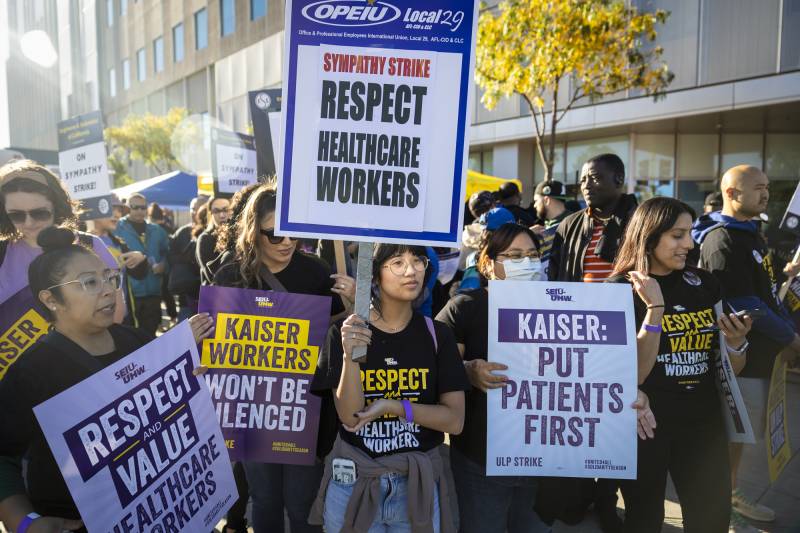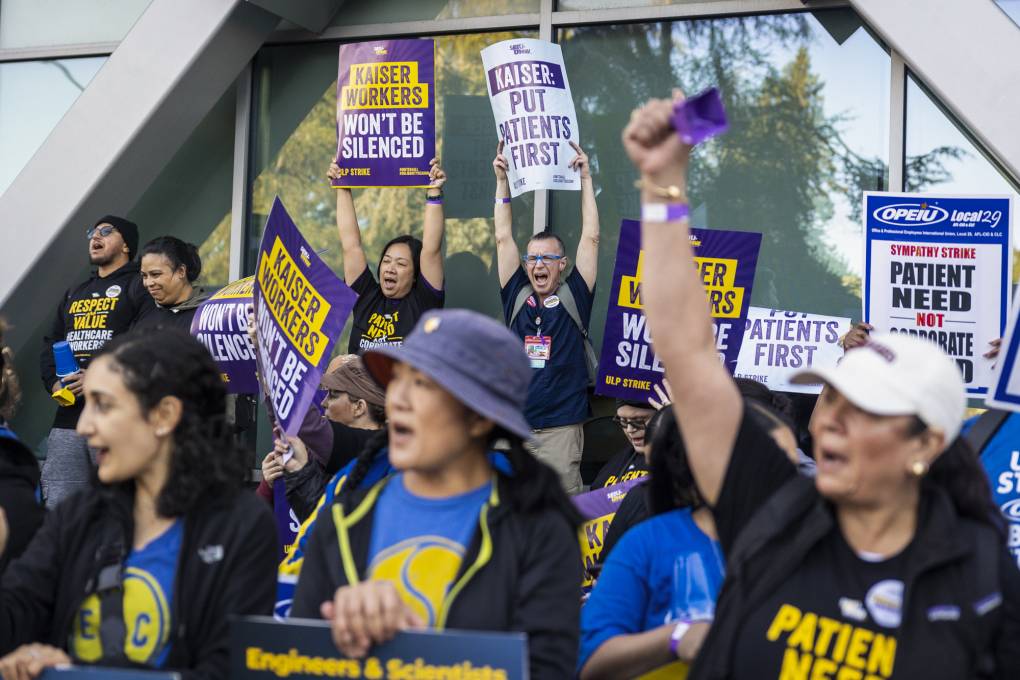Kaiser Permanente health care employees could continue to strike after Saturday’s scheduled end if negotiations with their employer aren’t successful.
Nearly 23,000 Kaiser employees in the Bay Area walked off the job on Wednesday for what has been recognized as the largest health care worker strike in U.S. history. The strike — which includes tens of thousands more Kaiser employees in Oregon, Washington, Colorado, Virginia and Washington, D.C. — is slated to end on Saturday morning at 6 a.m., and the next bargaining session is scheduled for Oct. 12.
On Friday morning, the coalition of unions representing Kaiser employees said they could authorize another strike in the near future if bargaining continues to stand still.
There will be at least a 10-day notice before the strike might resume.
“It is possible that the coalition will issue a 10-day strike notice after Saturday, which could lead to further striking by Kaiser employees after those ten days if Kaiser executives continue to commit unfair labor practices and bargain in bad faith,” the Coalition of Kaiser Permanente Unions said in a press statement on Friday.


